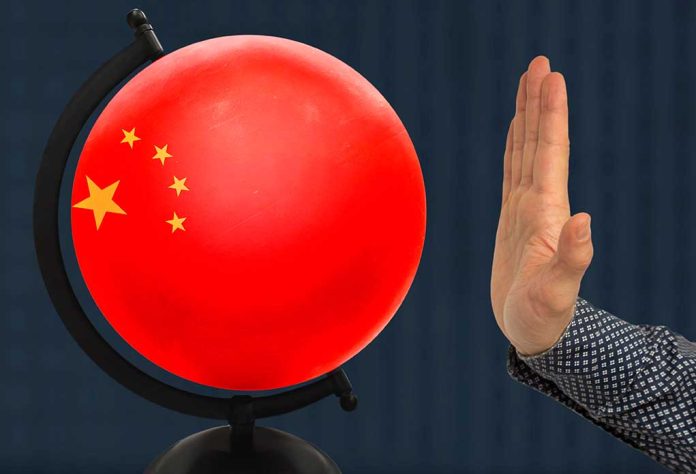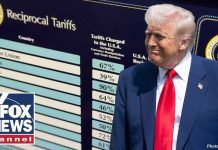
The Chinese government’s decision to block a $22.8 billion port sale to BlackRock has heightened geopolitical tensions, hinting at a complex power struggle over global trade influence.
Key Takeaways
- The Chinese government pressured CK Hutchison Holdings to cancel the sale of global port assets to BlackRock.
- China’s State Administration for Market Regulation (SAMR) launched a review of the deal to protect national interests.
- CK Hutchison’s proposed deal involves 43 ports across 23 countries, raising autonomy concerns in China.
- President Xi Jinping was reportedly upset by the sale due to lack of prior consultation with Beijing.
- The issue underscores global geopolitical influences, especially in maritime affairs.
Chinese Government Blocks Port Deal
The Chinese government is pressuring CK Hutchison Holdings to abandon its proposed $22.8 billion sale of global port assets to a BlackRock-led consortium, a move impacting ports at crucial locations like the Panama Canal. The sale of these 43 ports across 23 countries has sparked fears in Beijing about potential erosion of strategic autonomy. China’s State Administration for Market Regulation (SAMR) has announced a review to ensure market fairness and public safety.
Xi Jinping’s reaction to the transaction adds another layer of complexity to this geopolitical issue. He was reportedly “angry” due to the CK Hutchison’s failure to consult with Beijing before agreeing to the sale. Media outlets under China’s control, such as Ta Kung Pao, strongly criticized the sale, describing it as a “betrayal of all Chinese people.”
Strategic Implications for China’s Global Influence
Analysts point out that this sale could undermine China’s Belt and Road Initiative by weakening its hold in the U.S. sphere of influence. The White House appeared confident that Panama would mandate the transfer of these assets, viewing it as a strategic victory in U.S.-China influence battles. On the other hand, President Trump referenced the event to reinforce American dominance, stating, “My administration will be reclaiming the Panama Canal, and we’ve already started doing it. Just today, a large American company announced they are buying both ports around the Panama Canal.”
Chinese state directives pushing CK Hutchison away from finalizing the deal could also affect its business operations globally, disincentivizing future foreign investments in regions like Hong Kong. As BlackRock holds vital investments in China, the outcome of these negotiations could shift, mirroring the ever-present political and economic tensions between Beijing and the West.
Global Business and Geopolitical Narratives
This situation highlights the pivotal role of geopolitical influence strategically interwoven in international business decisions, especially in maritime and port management sectors. Blocking this deal could strengthen arguments that trade policies in Hong Kong are inseparable from the CCP’s influence, amplifying the trade tensions long simmering between the U.S. and China. According to analyst Claus Soong, “The sale impacts the Belt and Road Initiative and weakens China’s influence in the U.S.’s backyard.”
Unfolding actions from both Chinese and American ends suggest a complex global arena where no move is without consequence. As court actions and economic shifts develop, the global community eyes how China’s perception of market control and autonomy will affect future endeavors regarding critical logistics hubs.
Sources:
- https://www.datamarnews.com/noticias/china-pressures-company-over-sale-of-ports-in-panama-canal/
- https://nypost.com/2025/03/31/business/china-blocks-23b-sale-of-panama-canal-ports-to-blackrock/
- https://www.breitbart.com/asia/2025/04/01/china-blocks-panama-canal-port-sale-report-claims-xi-jinping-infuriated-by-deal-sought-without-his-approval/



